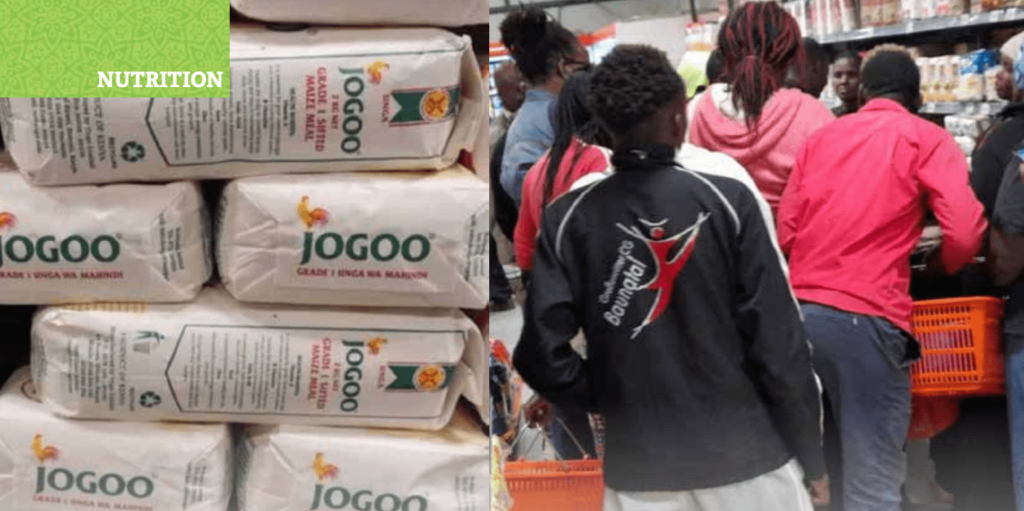By Henry Owino
African countries back biofortified foods to fight hidden hunger
In Africa where two billion people suffer from micronutrient deficiencies such as stunted growth and anaemia, governments and non-governmental organisations say fortification of foods is a cost-effective public health intervention in reducing micronutrient deficiencies among the poorest and most vulnerable people.
“Fortification of foods is increasingly being promoted as a promising solution that can easily involve private sector companies in the fight against hunger as well as malnutrition.
It encourages private stakeholders to be involved in agriculture and nutrition and
has potential to improve the diets of the populations that are vulnerable to micronutrient deficiencies,” says Mary Nzomo, a former agriculture minister in Kenya’s Transnzoia county government.
According to the guidelines on food fortification by both World Health Organization (WHO) Food and Agriculture Organization (FAO), defines food fortification as “the practice of deliberately increasing the content of an essential micronutrient such as vitamins and minerals (including trace elements) in a food, so as to improve the nutritional quality of the food supply and provide a public health benefit with minimal risk to health.”
Global Alliance for Improved Nutrition & Food Fortification Initiative (GAIN) explains food fortification as the practice of adding essential micronutrients to foods that are widely consumed by the general population or a target group.
Leah Kaguara, Country Director for GAIN, says that micronutrient malnutrition (MNM) is a major public health issue and that adding vitamins and minerals to staple foods is now international policy although the rate of adoption in most developing countries is slow. “This is as per the WHO recommendation to fortify foods in third world countries where diseases due to lack of pertinent nutrients are high compared to industrialised nations.
Lack of sufficient amount of vitamin A and iron has the greatest impact on public health according to the global health body,” Ms Kaguara says. The most common forms of MNM include vitamin A, iron or iodine deficiency. Folic acid, vitamin D, selenium and zinc deficiencies, although less recognised are important.
“Lack of those micronutrients represents a major threat to the health and development of populations, particularly children and pregnant women. They account for 7.3 percent of the global burden of disease,” says Ms Kaguara.
In sub-Saharan Africa where the prevalence of malaria, HIV, diarrhoeal diseases and other infectious conditions is high, MNM increases their severity and has a high health impact on children and pregnant women.
Providing the nutrients needed for growth, development, and the maintenance of healthy life has enormous, long-term positive impacts.
For example, it offers protection against anaemia, stunting, and a whole host of other medical issues and enables proper physical and cognitive development among children and adolescents. Universal salt iodization is often cited as a fortification success providing iodine to vast numbers of people around the world, including here in Africa.
Some African countries have made progress in the implementation of various fortification programmes over the last 20 years such as enriching widely-consumed
foods like wheat, maize, salt and edible oils with essential micronutrients such as iron, iodine, vitamin A, folate (vitamin B9) and zinc.
In Kenya, a national fortification programme has been implemented with support from various partners including Nutrition International, to improve fortification capacity of small- and medium-size maize millers, and increase coverage and reach of fortified maize flour.
The Tanzanian government passed mandatory food fortification legislation in July 2011, providing a tax exemption for imported premix for its national fortification programme The Ethiopian Standard Council on June 10, 2022, endorsed the mandatory fortification of edible oil and wheat flour, a decision that aimed to save millions of lives and prevent the country’s high burden of neutral tube defects (NTDs).
Ethiopia is one of the countries with a great burden of micronutrient deficiencies. According to the Ethiopian Public Health Institute Micronutrient Survey report (2016), the prevalence of anaemia adjusted for altitude among preschool children, school age children and non-pregnant women of reproductive age was 34.4 percent, 25.6 percent and 17.7 percent respectively.
In South Africa, national fortification of salt with iodine, and wheat bread flour and maize meal with multiple micronutrients has been mandated by law since 1998 and 2003, respectively. In 2002, Nigeria successfully mandated a salt iodization programme and the fortification of maize and cooking oil with vitamin A, and sugar and flour with iron.


